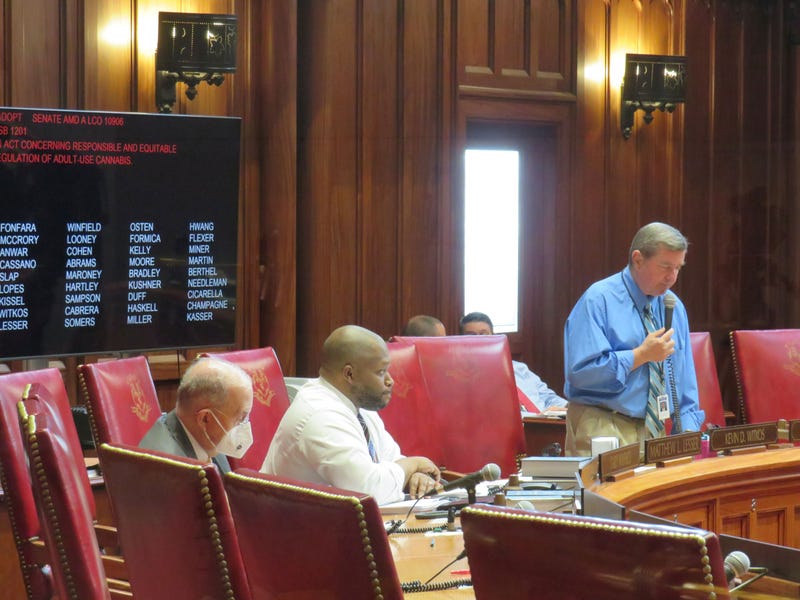
State Senate Republicans came into Tuesday's special session ready to try, again, to block legalization of marijuana for recreational use in Connecticut.
It appears, for now, that Democrats did it for them.
By a 19-12 vote, the Senate voted (for the second time in a week) to approve the state's long-debated marijuana bill. Almost simultaneously, Gov. Ned Lamont, a supporter of legalizing pot, promised to veto it.
The governor takes issue with an amendment redefining qualifications for valuable marijuana distribution licenses. It includes those who've had prior marijuana convictions. He believes the new language "opens the floodgates" to candidates who are not from distressed neighborhoods-- falling short of the governor's social equity goals.
The bill's sponsor, Sen. Gary Winfield (D-New Haven), explains what the amendment, passed earlier Tuesday, is intended to do, and why he believes the governor objects:
"The amendment we passed, that from my perspective was supposed to be clarifying," says Winfield, "that people with criminal records... can be social equity applicants (for marijuana licenses). That's where the governor has issue because, from his perspective, the way it's written opens this up to too many people."
The governor is concerned that those who've been convicted of a marijuana offense and have access to a great deal of money could wind up with marijuana licenses intended for those of lesser means. The governor's Chief of Staff, Paul Mounds, issued a statement:
"Senate Bill 1201 now allows just about anyone with a history of cannabis crimes or a member of their family, regardless of financial means, who was once arrested on simple possession to be considered with the same weight as someone from a neighborhood who has seen many of their friends and loved ones face significant penalties and discrimination due to their past cannabis crimes. That is not equity, and Governor Lamont will veto this bill if it reaches his desk in its current form."
As of Tuesday night, the House planned to vote on the marijuana bill during its special session Wednesday. The House would be voting on the amended bill that passed the Senate-- the same version Gov. Lamont says he plans to veto.
Senate Minority Leader Kevin Kelly (R-Stratford), who opposes legal pot for recreational use, says Democrats' dispute over who will get licenses says a lot about the bill.
"It's all insiders looking at splitting up the revenue that's generated by marijuana," says Kelly. "I don't think we should making this policy choice based on money. I think we should put our kids first."
Unless the governor changes course again, the long-considered marijuana bill won't become law this year. In that case, the last second Democrat-on-Democrat squabble will have given minority Republicans an important policy win.
